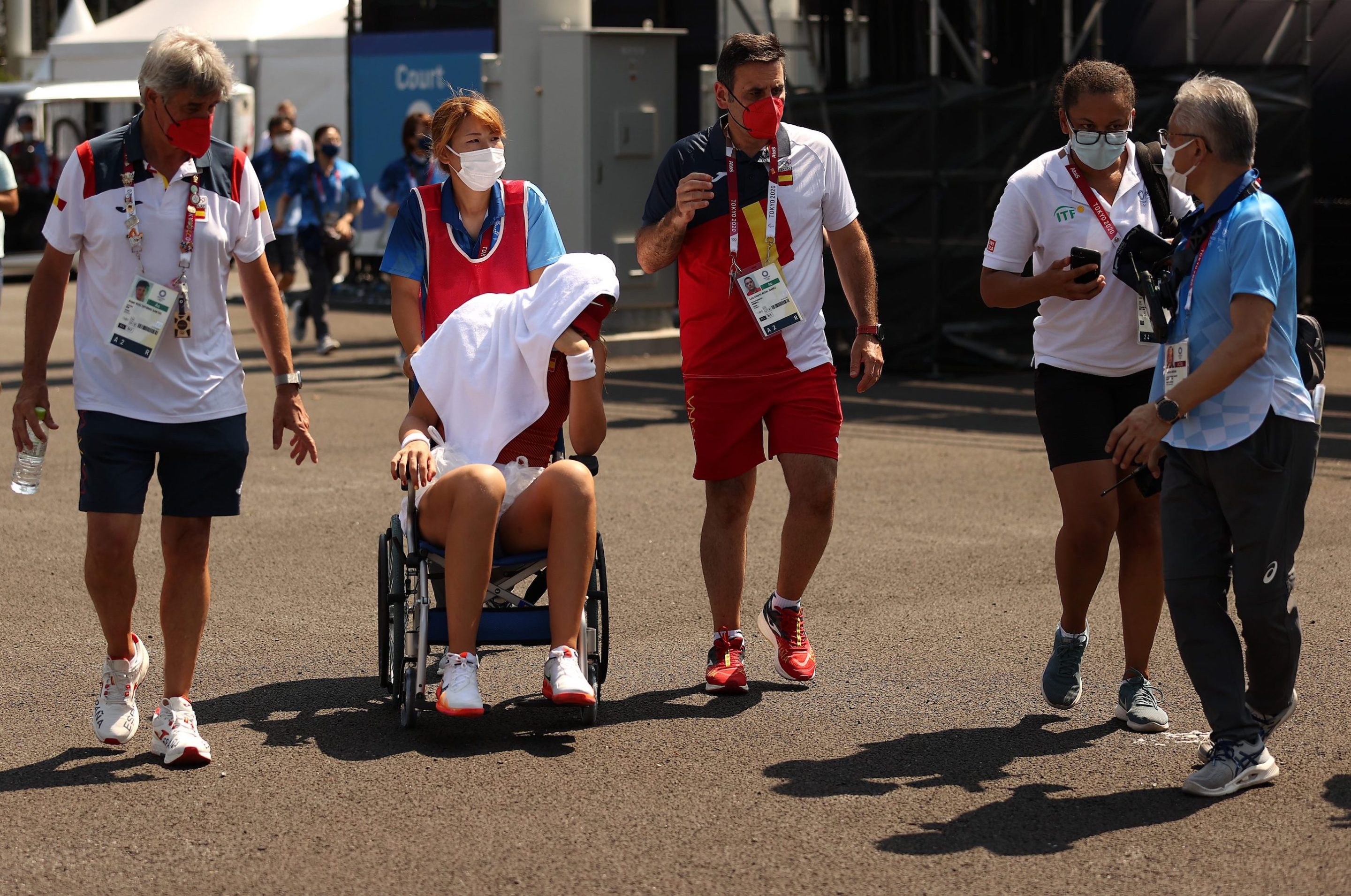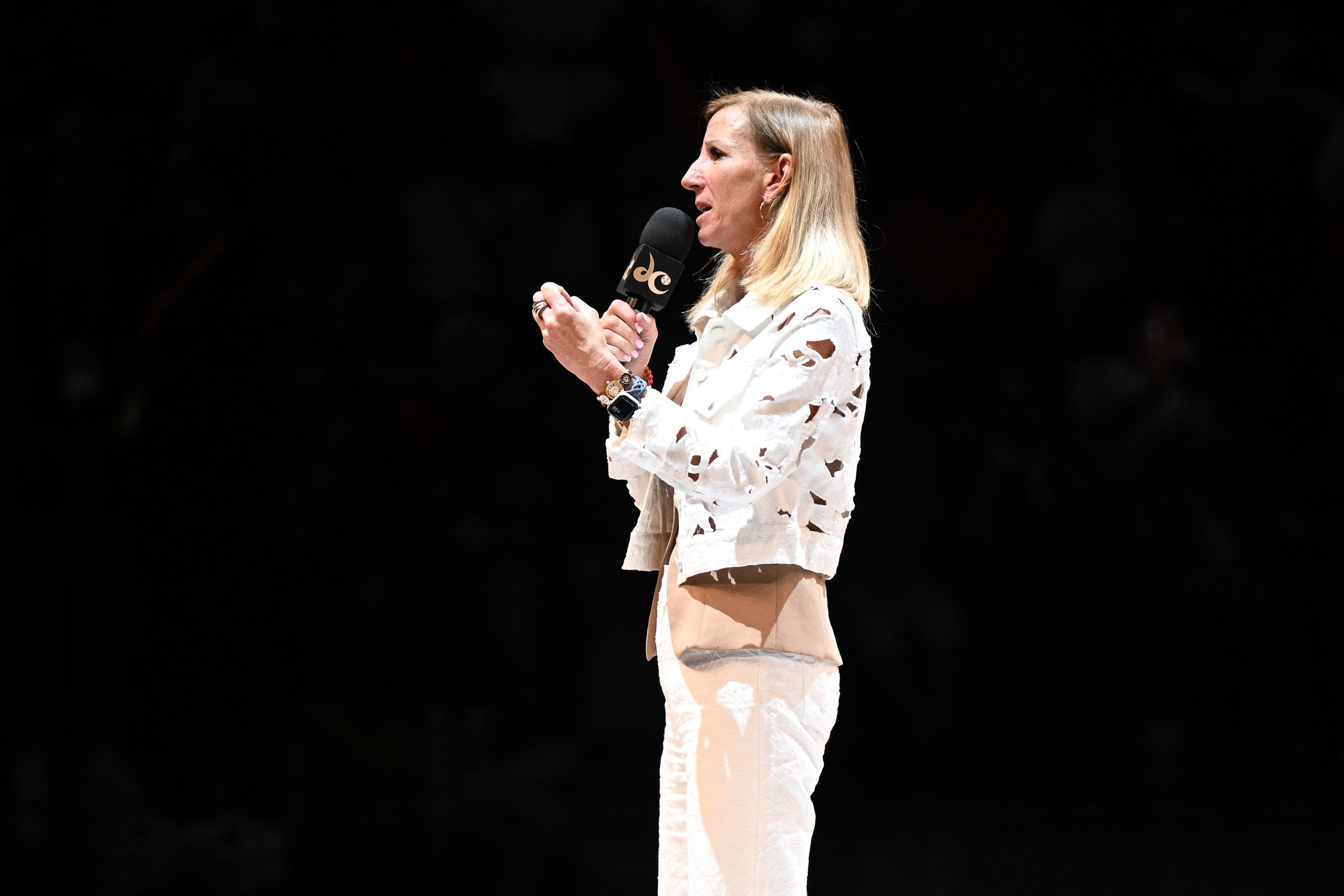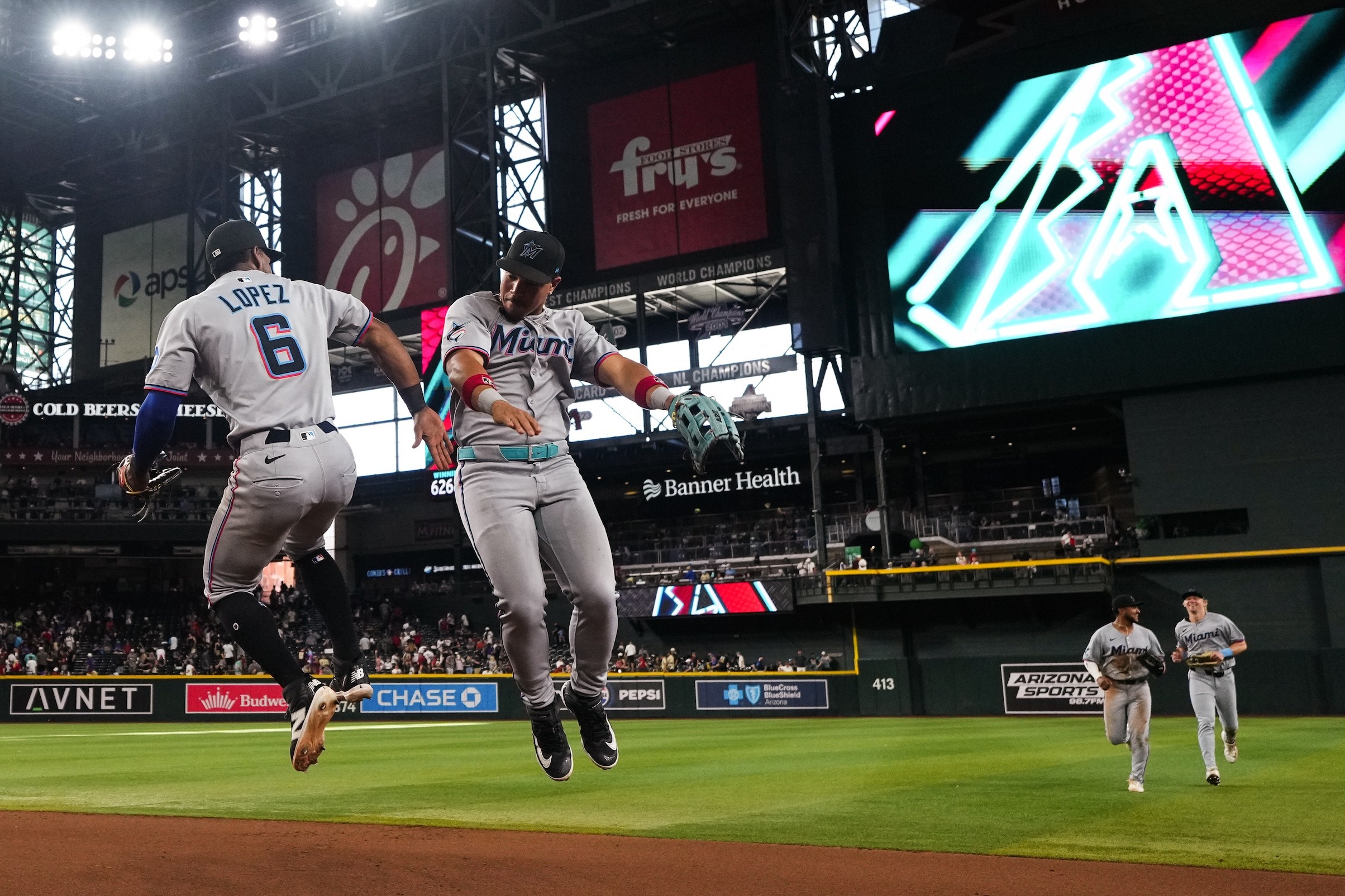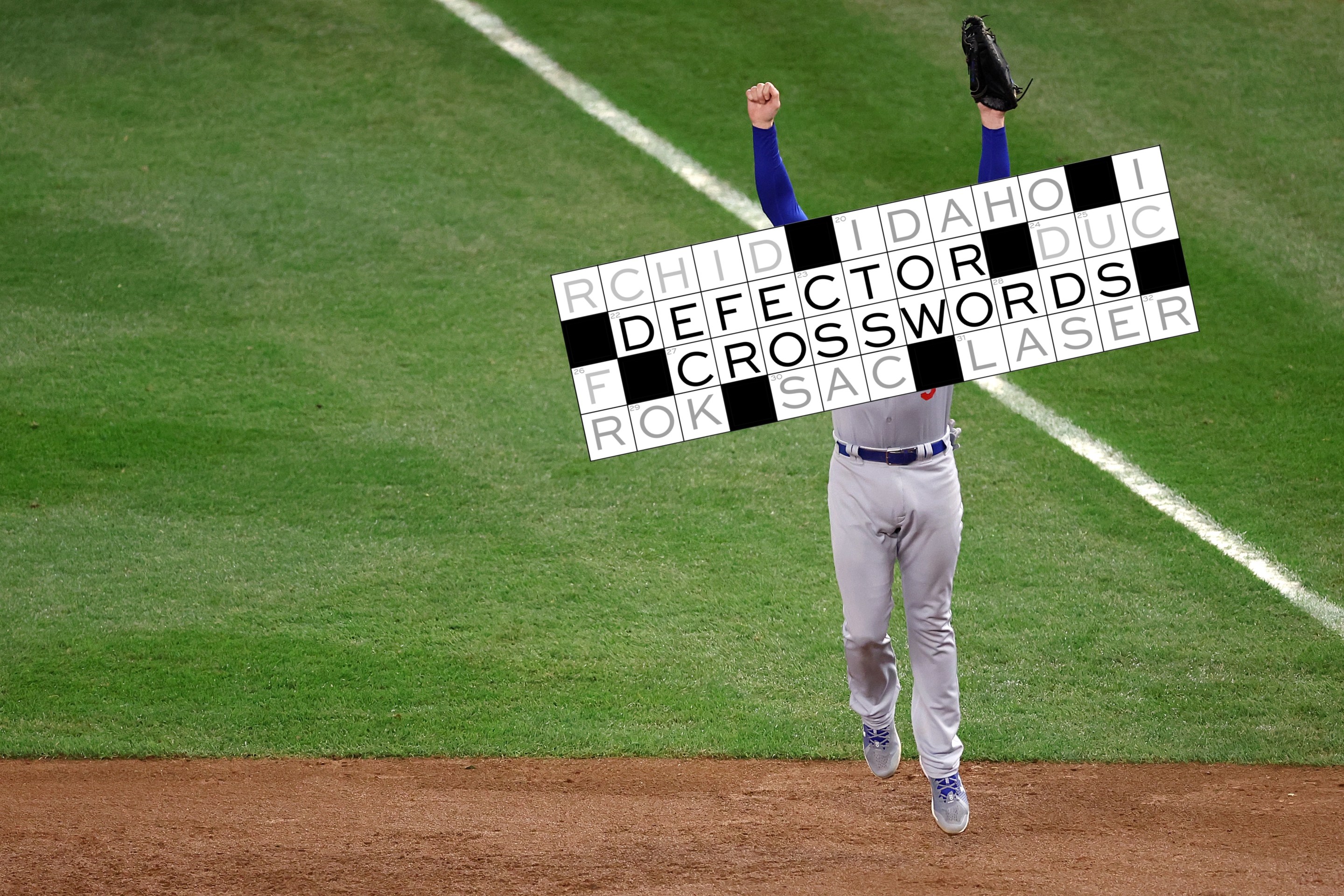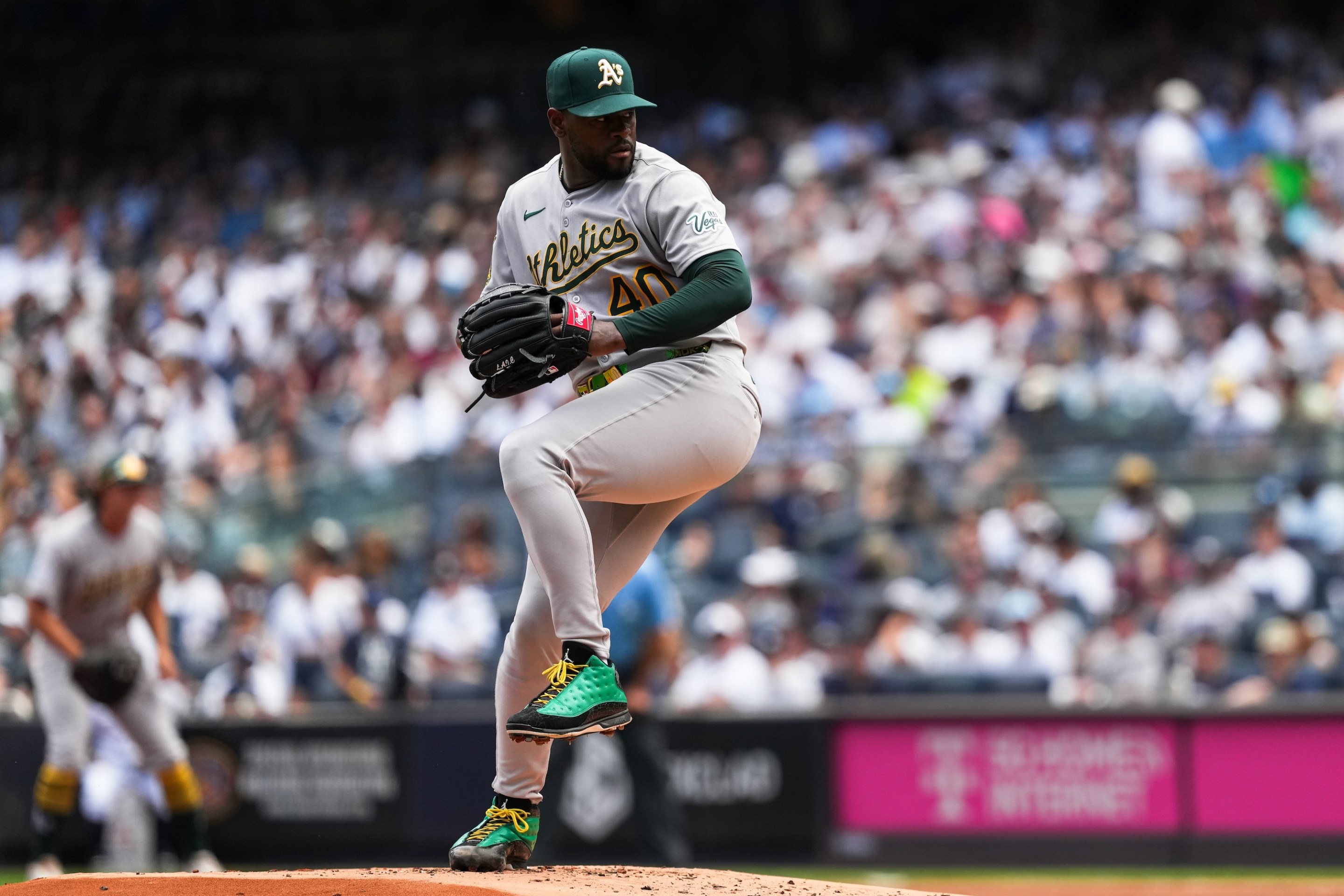The sun is really having a moment. It will continue to do so for the rest of our species' timeshare on this rock, but in the interest of staying in the present, consider the big star's impact on these Tokyo Olympics, which have seen temperatures in the 90s paired with tropical-storm humidity, a Russian archer collapsing mid-competition from heat exhaustion, and triathletes writhing on the ground post-race. Conditions are especially bleak for tennis players, who are competing for hours at a time on hard courts that "absorb the heat, it stays trapped in there," as Novak Djokovic noted after his first-round win. Wednesday's play marked a breaking point for both competitors and organizers.
Daniil Medvedev, the second seed in the men's draw, can always be counted on for a lively quote, but today had only vantablack comedy to offer: "I can finish the match, but I can die," he told the umpire during his three-set quarterfinal win over Fabio Fognini. "If I die, will the [International Tennis Federation] take responsibility?" Players are offered a tube blasting cool air during changeovers; Medvedev also called for medical timeouts and a visit from the physiotherapist to survive his match. Per the tournament's extreme weather policy, players could take a 10-minute long break between sets if both participants agreed. Medvedev used this time to take a cold shower, and said his body began to cramp due to the change in temperatures.
His quotes after the 6-2, 3-6, 6-2 win were more alarming still. Via BBC:
"Even from the first set I didn't feel good enough with my breathing. That's why I called the physio - I felt like my diaphragm was blocked," he said, adding that he felt it was the most humid day so far in Tokyo.
"And then on the second set, I just had darkness in my eyes, like between every point. I didn't know what to do to feel better. Like I was bending over and I couldn't get my breath together so I was ready to just fall down on the court."
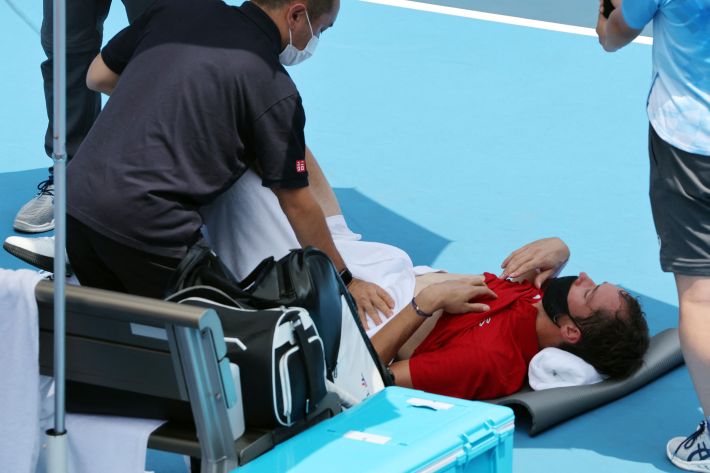
All those maladies, and Medvedev wasn't even the worst-off tennis player of the day. That would be Paula Badosa of Spain, who retired from her quarterfinal against Czech Republic's Marketa Vondrousova after losing the first set. Badosa, world No. 29 and one of the tour's winningest players in the spring, retired due to heatstroke and left the court in a wheelchair, draped under a towel. She would also withdraw from her mixed doubles match slated for later in the day.
"It's a shame to end my participation in this way," Badosa said. "It's been a tough ask since day one. We tried to adapt as best we could but today my body hasn't held up as it needed to."
Wednesday's suffering was finally enough to convince the International Tennis Federation, which governs Olympic tennis, to push back all match start times past 3 p.m. local time, a change that Djokovic and Medvedev had lobbied for last week. Players had previously been put on court at 11 a.m.
In the interests of player health and welfare and following extensive consultation, Tokyo 2020 Olympic Tennis Event matches will begin at 3pm JST from Thursday 29 July#Tokyo2020 #tennis pic.twitter.com/skqh9ALRIV
— ITF Media (@ITFMedia) July 28, 2021
Djokovic, who also called for better athlete accommodations in the Australian Open's hotel bubble, has frequently mentioned player health and safety as a big incentive to organize his coworkers into a group called the Professional Tennis Players Association. Someone has to do it, because conditions for safely playing high-level tennis will only get scarcer on an increasingly inhospitable planet.
